lifeline
Latest

T-Mobile will pay $200 million to settle Sprint's alleged Lifeline abuse
T-Mobile is paying $200 million to settle FCC assertions that Sprint abused Lifeline claims.

Verizon gives customers extra mobile data to deal with COVID-19
More cellular carriers are taking steps to ensure people can stay online during the COVID-19 pandemic. Verizon (Engadget's parent company) is giving consumer and small business customers an extra 15GB of LTE data speeds per month on their plans, with no action required. This applies regardless of the device you're using, and whether your service is a regular subscription or prepaid. It's not the completely unlimited access you might hope for, but it could help you stay online if you depend on your phone's data for work.

Bernie Sanders proposes $150 billion for public broadband improvements
Bernie Sanders has unveiled his plan for US broadband if he wins the 2020 presidential election, and it won't surprise you to hear that his strategy would focus on making high-speed internet as widely accessible as possible. He intends to earmark $150 billion (as part of the Green New Deal) for infrastructure grants and technical help for "publicly owned and democratically controlled, co-operative or open access" broadband. He would also ensure free broadband in public housing and override state laws (frequently written by private ISPs) that block municipal internet.

FCC crackdown on cellphone subsidies leaves millions without service
The Ajit Pai-era FCC has spent much of its energy cracking down on claimed abuses of the Lifeline subsidy program, but this anti-fraud effort may be hurting low-income households more than it helps. The investigative news outlet Center for Public Integrity has used FCC data to determine that nationwide enrollment for cellphone subsidies has dropped by about 2.3 million people, or 21 percent, since 2017. The cuts have been particularly severe in places like the District of Columbia, where 49 percent of Lifeline users lost their subsidies between March 2018 and June 2019. Mississippi, Wyoming and Puerto Rico also lost a third or more of their enrollment in the same time frame.
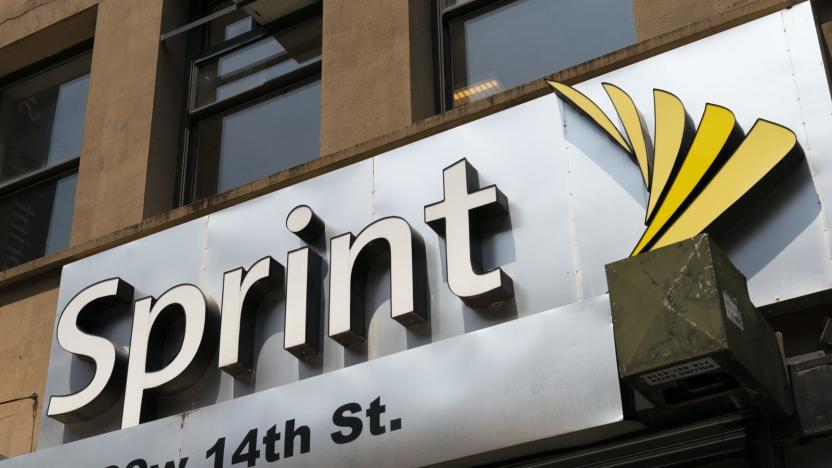
FCC says Sprint falsely claimed Lifeline subsidies for 885,000 customers (updated)
The Ajit Pai-era FCC has been determined to crack down on Lifeline program abuse from the outset, and now it's leveling some particularly serious allegations. Regulators have accused Sprint of claiming monthly subsidies in the low-income communications program for 885,000 customers that weren't using it. That represents just shy of 30 percent of Sprint's Lifeline customers, almost 10 percent of the whole Lifeline base and "tens of millions" of dollars in wasted funding, the FCC said.
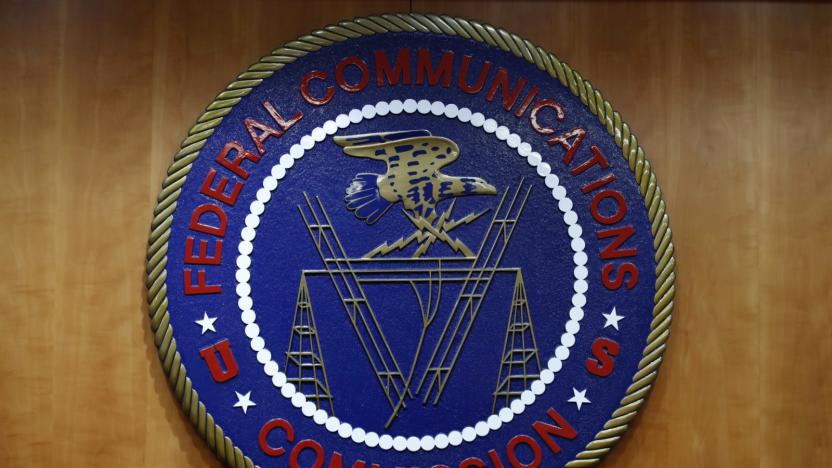
FCC proposes '988' for quick access to national suicide prevention line
The FCC wants accessing a national suicide prevention line to be as simple as dialing 988. In a report sent to Congress today, staff members recommend that the FCC designate 988 as the 3-digit dialing code for a nationwide suicide prevention and mental health crisis hotline.
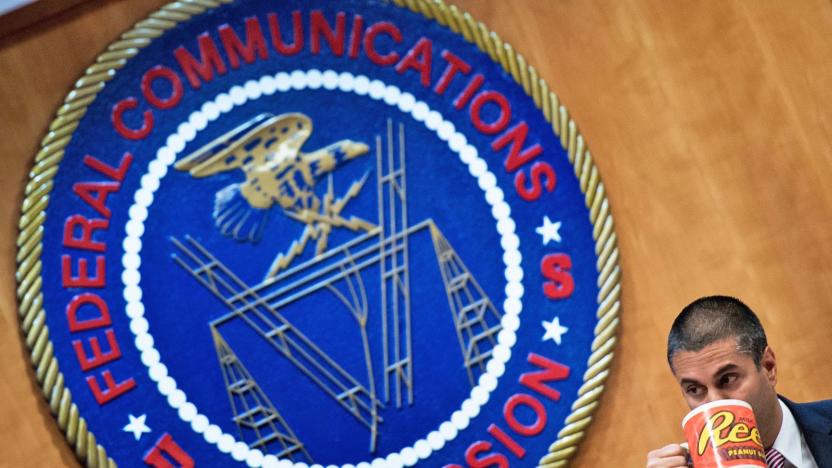
FCC loses bid to cut tribal broadband subsidies
Things definitely aren't going the FCC's way this week. A federal appeals court has reversed the FCC's attempt to cut broadband subsidies in tribal lands, citing both a lack of supporting evidence as well as a lack of considerations when making the decision. The regulator didn't show how pulling the $25 Lifeline discount would lead to carriers filling the void like it claimed, according to the ruling. It also didn't acknowledge that resellers were leaving the program, and didn't factor in the potential loss of access to internet service or the wireless rollout data related to the services they use.

Court blocks FCC from cutting broadband subsidies in tribal lands
The FCC has hit a snag in its plan to curb broadband subsidies for low-income homes. A DC appeals court has issued a stay order temporarily blocking the regulator from limiting the $25 monthly Lifeline subsidy in tribal lands, arguing that native groups and small carriers are likely to win their case opposing the cuts. The court agreed with plaintiffs that the FCC's move would likely lead to a "major reduction, or outright elimination" of vital communication for many tribal residents, and "substantial, unrecoverable losses" for providers that might lead to them going out of business.
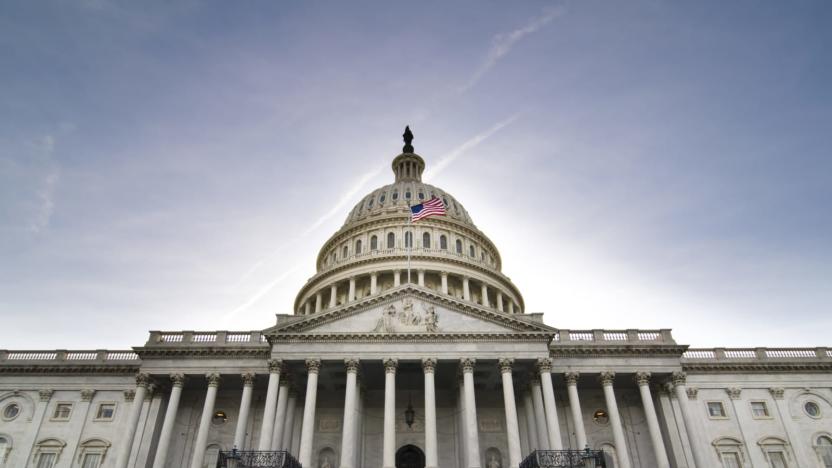
Bipartisan bill calls for study on economic impact of broadband access
Two Democratic and two Republican Representatives have introduced a bill that, if enacted, would require the Department of Commerce to research how access to broadband impacts a variety of economic factors like employment, income and population growth, Wired reports. The proposed legislation, called Measuring the Economic Impact of Broadband Act of 2017, was introduced by Representatives Ro Khanna, Brian Fitzpatrick, Anna Eshoo and Ryan Costello and is a companion bill to a bipartisan Senate proposal led by Senators Amy Klobuchar and Shelley Moore Capito.

FCC Commissioner Clyburn talks about net neutrality at CES
Commissioner Mignon Clyburn has been a vocal defender of net neutrality and even helped author the Open Internet Order in 2015. She was on the ground and Las Vegas for CES and was nice enough to make time to swing by the Engadget stage. She sat down to talk about the importance of net neutrality and her quest to protect it for future generations as well as how current policies are putting at risk those most vulnerable. Unfortunately, there were some technical problems with our audio during the interview, so we've included a slightly abridged transcript after the break. Click here to catch up on the latest news from CES 2018.
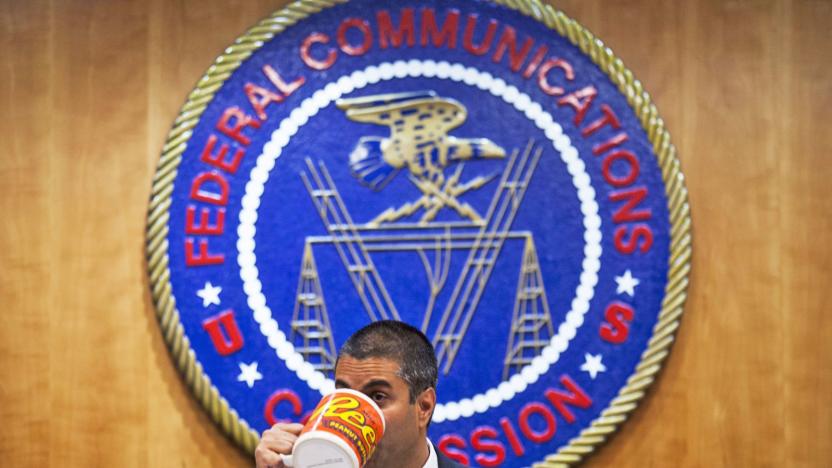
FCC vote could force low-income households offline
Bootstrapping yourself out of poverty via the internet is about to get a lot harder in the US. The FCC, led by industry-friendly chairman Ajit Pai, has voted along party lines to reform the low-income Lifeline broadband subsidy program. Among the most contentious items are a proposal to tighten eligibility requirements and cap spending, and another to halt subsidies through internet resellers like Windstream. If voted through, the latter proposal could force over 70 percent of Lifeline enrollees to seek a new provider, and many would have no option at all.
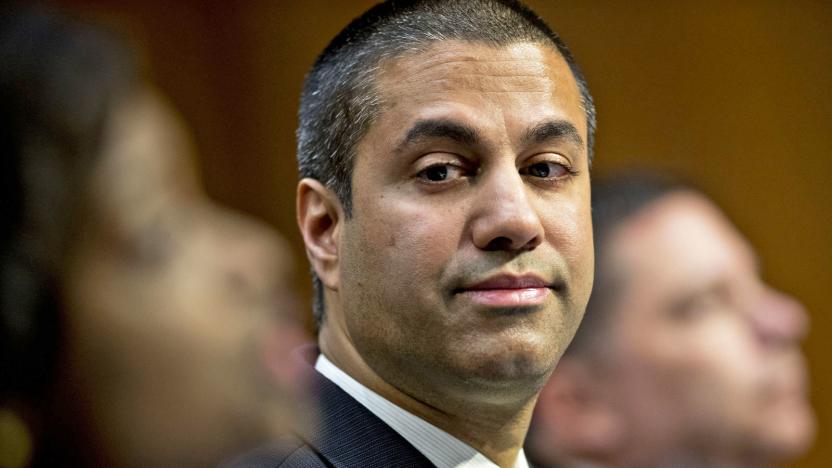
FCC stops federal approval of low-income broadband subsidies
When FCC Chairman Ajit Pai froze the plan to include nine broadband companies in the commission's Lifeline program in February, the future of low-cost, government subsidized internet access suddenly seemed uncertain. Now, nearly two months later, Chairman Pai has released a new statement saying that the commission supports including broadband in the Lifeline program, but will put a stop to the federal approvals process for new providers. Instead, it will let individual states decide which service providers should be included.
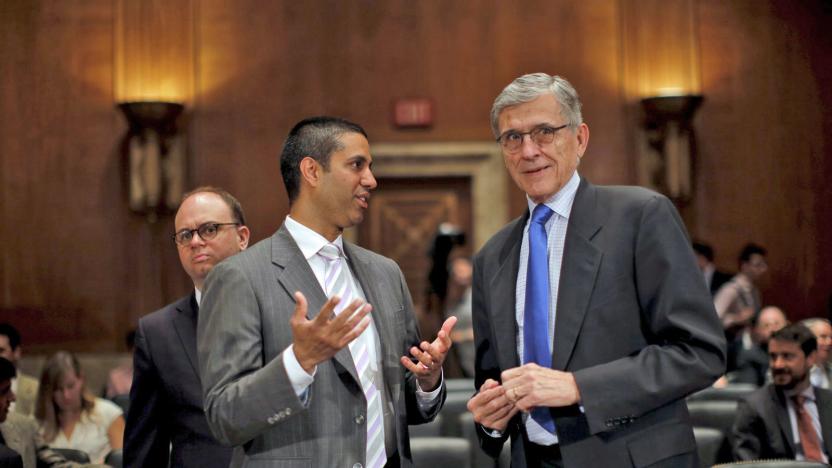
FCC halts nine companies from participating in the 'Lifeline' program
FCC Chairman Ajit Pai announced on Friday that the FCC will not let nine companies participate in the federal Lifeline program, which provides low-cost internet connectivity for some of America's lowest-income households. This decision comes just weeks after Pai's democratic predecessor, Tom Wheeler, had granted the companies permission.

YouTube's future pay-only shows include one from 'The Rock'
YouTube is more determined than ever to line up major original shows for its Red subscription service. The video giant has scored deals for three new exclusives from names you will definitely recognize. The highlight might just be Dwayne "The Rock" Johnson's Lifeline. Apart from its celebrity producer, the sci-fi series revolves around the intriguing (if Minority Report-like) concept of insurers who travel 33 days ahead in time to prevent the deaths of their customers.

FCC expands Lifeline to help low-income Americans afford internet
Today the FCC voted 3-2 to approve expanding its Lifeline program that has subsidized phone and prepaid wireless access for low-income Americans since the 80s, so that now it covers internet access too. The $9.25 household subsidy is paid directly to service providers, and now it can be applied to standalone internet access, or bundled voice/data service. There are requirements for the services provided, like a minimum 150GB monthly usage cap, as well as minimums for mobile broadband usage and cellphone voice minutes.

US to give poorer Americans $9 a month for broadband
The Federal Communications Commission has been talking a lot about reforming its Lifeline subsidy program to focus more on internet for poorer Americans than phone service, and now it's ready to show what those reforms should look like. The agency has published details of a proposal that, at its heart, would give low-income households $9.25 a month for broadband, whether it's fixed or mobile. The offer would cover both stand-alone internet access and bundles with voice service. Also, recipients wouldn't be stiffed on quality. You'd get service at least as good as what the "substantial majority" of Americans receive (currently 10Mbps downstream and 1Mbps up), and any cellphone voice plans have to include unlimited talk time.

FCC votes to subsidize broadband internet for low-income households
Last month, the Federal Communications Commission announced plans to subsidize broadband internet service for low-income households. Today, the commission voted on the matter, approving the addition of internet subsidies to the Lifeline program that already offers both phone and prepaid wireless. Less than half of homes that make less than $25,000 have internet access, and today's vote offers help and provides steps to oversee the process, too. For example, service providers will no longer verify eligibility. That task will be given to a third-party instead. The vote also set the subsidy rate at $9.25 per month for both internet and phone service. Where does that money come from? Fees paid by service providers that are listed on customers' monthly bills. The FCC is looking to ensure not only the program's efficiency, but cut down on fraud and establish a set budget as well. [Image credit: Pete Marovich/Bloomberg via Getty Images]

Feds to overhaul program that delivers broadband to the poor
While 95 percent of American households earning six figures annually have access to broadband internet, just 48 percent of homes making under $25,000 enjoy the same benefit. Thursday, the Federal Communications Commission announced plans to reduce that internet inequality gap by subsidizing the broadband access for America's poorest families. Specifically, the FCC is looking to revamp its existing Lifeline program, which already provides both phone and prepaid wireless service, to now include broadband as well.

State of Decay 'Lifeline' DLC surges to life on May 30
State of Decay's "Lifeline" DLC is due out on May 30 for $7, Undead Labs announced this week. The DLC is in certification now, and "if all goes well," it'll hit on May 30 alongside the "Rucks in Trucks" Title Update. Lifeline places a squadron of soldiers on a new, zombie-infested map, where they must take down the undead, protect their base and rescue survivors. The map is a concrete jungle and former city center, complete with skyscrapers, freeway tunnels and overpasses, and helicopter pads. The Rucks in Trucks Title Update lets players throw a sack of things into the back of a vehicle and drive it away. Undead went into the gritty details of Rucks in Trucks back in March. [Image: Undead Labs]

State of Decay 'Lifeline' expansion digs up a new map
State of Decay's second expansion pack, Lifeline, is in the internal testing process at Undead Labs. There's no launch date yet, but it includes a new map and the team is currently putting it through its paces on Steam, Community Director Sanya Weathers says on the Undead blog. "We're not yet ready to discuss features or make promises," Weathers says. "All we can tell you is that it will offer you a new way to play your favorite survival game, that we intend to launch on PC and the Xbox 360 at the same time, and that yes, it will broaden your horizons by a few kilometers. Fine, I'll say it straight up: There's a new map, okay?" Undead launched State of Decay's first expansion, Breakdown, in November. In January, Undead extended its relationship with Microsoft Studios in a "multi-year, multi-title" agreement, and it hired ArenaNet founder and MMO developer Patrick Wyatt. [Image: Undead Labs]








